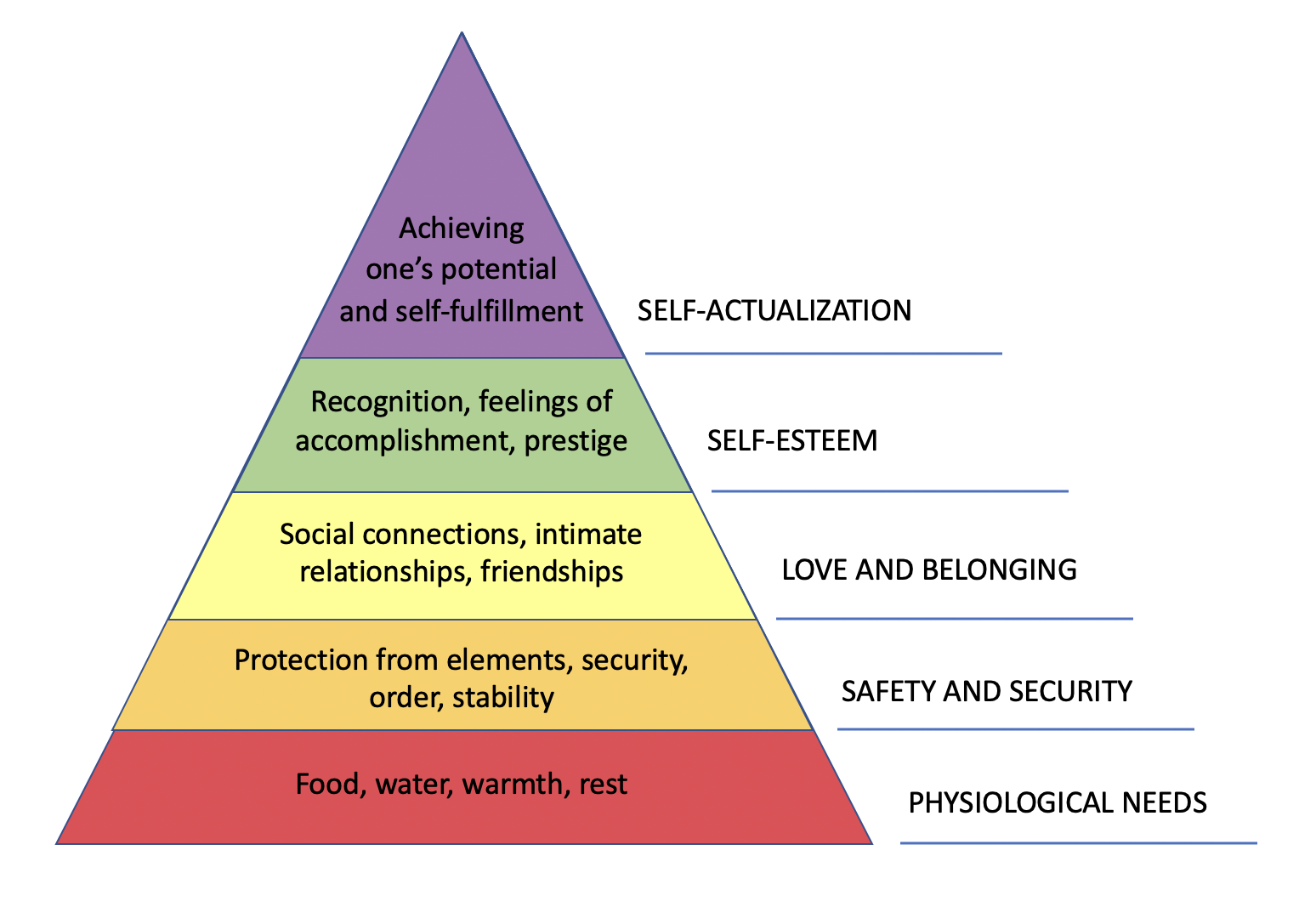
Why do we love free things so much?
Not having to pay for it – or thinking that we aren't paying for it – do we feel a sense that we've won something?
Beyond that feeling though, I think a lot and make sense of this world in terms of the psychological
theory of
Maslow's Hierarchy of Needs. So this is a good topic for me to use to introduce the theory and why I love it
so much
for understanding human needs and motivation.
Introduced in 1943, this theory suggests that human needs are arranged in a hierarchy, starting with the
most basic
physiological needs and moving up to higher levels of psychological needs.
When we look it up, we see charts such as this one:

At the foundation of Maslow's hierarchy are our physiological needs, followed closely by safety and security. Free things can often fulfill or supplement these basic requirements. For instance, free food samples or free health clinics directly address our needs for nourishment and health care. When people receive something for free, it provides a sense of relief and security, knowing that their essential needs are being met without financial strain.
Free items also offer a buffer against the unpredictability of life. In times of economic uncertainty or personal financial instability, free resources can provide a safety net, reducing anxiety and fostering a sense of stability. This aligns with Maslow's assertion that safety and security are paramount for human well-being.
Moving up the hierarchy, the need for love and belonging becomes prominent. Humans are inherently social creatures who crave connection and acceptance. Free things can facilitate these social bonds in various ways. For example, free events or community programs encourage social interaction, helping individuals build connections and feel like part of a community.
Plus, receiving free items can create a sense of inclusion and acceptance. When a company or individual offers something for free, it often feels like a gesture of goodwill which creates positive emotions and a sense of belonging. People appreciate the notion that someone cares enough to provide for them without expecting anything in return, reinforcing social bonds and communal harmony.
There is also a psychological thrill of free.
The word free triggers a powerful emotional response within us. It evokes a sense of excitement and pleasure, as it implies a win without a risk. This feeling is often described as the zero price effect, where the appeal of free items outweighs even the logical benefits of a discounted purchase.
Moreover, free things can create a sense of abundance and gratitude. When people receive something for free, it can lead to positive feelings and increased satisfaction. These emotions can foster loyalty and positive attitudes toward the provider, whether it's a business, organization, or individual.
But in this life, I don't believe there is anything that is truly free. There is always a price to pay, whether we know it or not. There seems to be an imaginary scale that we each need to keep balanced. It's the exchange of energy that plays in here – if someone works so hard on something, it's hard to just give it away for free and not expect anything in return – even if it is appreciation or gratitude.
Free things can provide immediate gratification and fulfill some of our basic and psychological needs, but they often come with hidden costs. These can be in the form of time, attention, or even personal information. Free apps often require users to watch ads or share data. Free samples at a store might encourage you to buy more than you intended. The notion of free can sometimes obscure the real value of things. It's important to remain aware of the implicit exchange that occurs even with free things and to appreciate the effort and resources that go into providing them.
